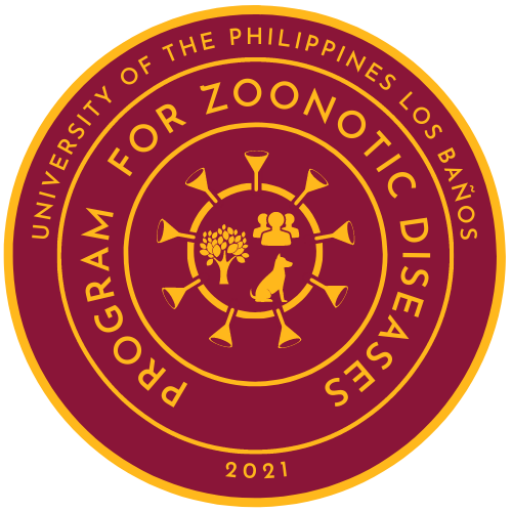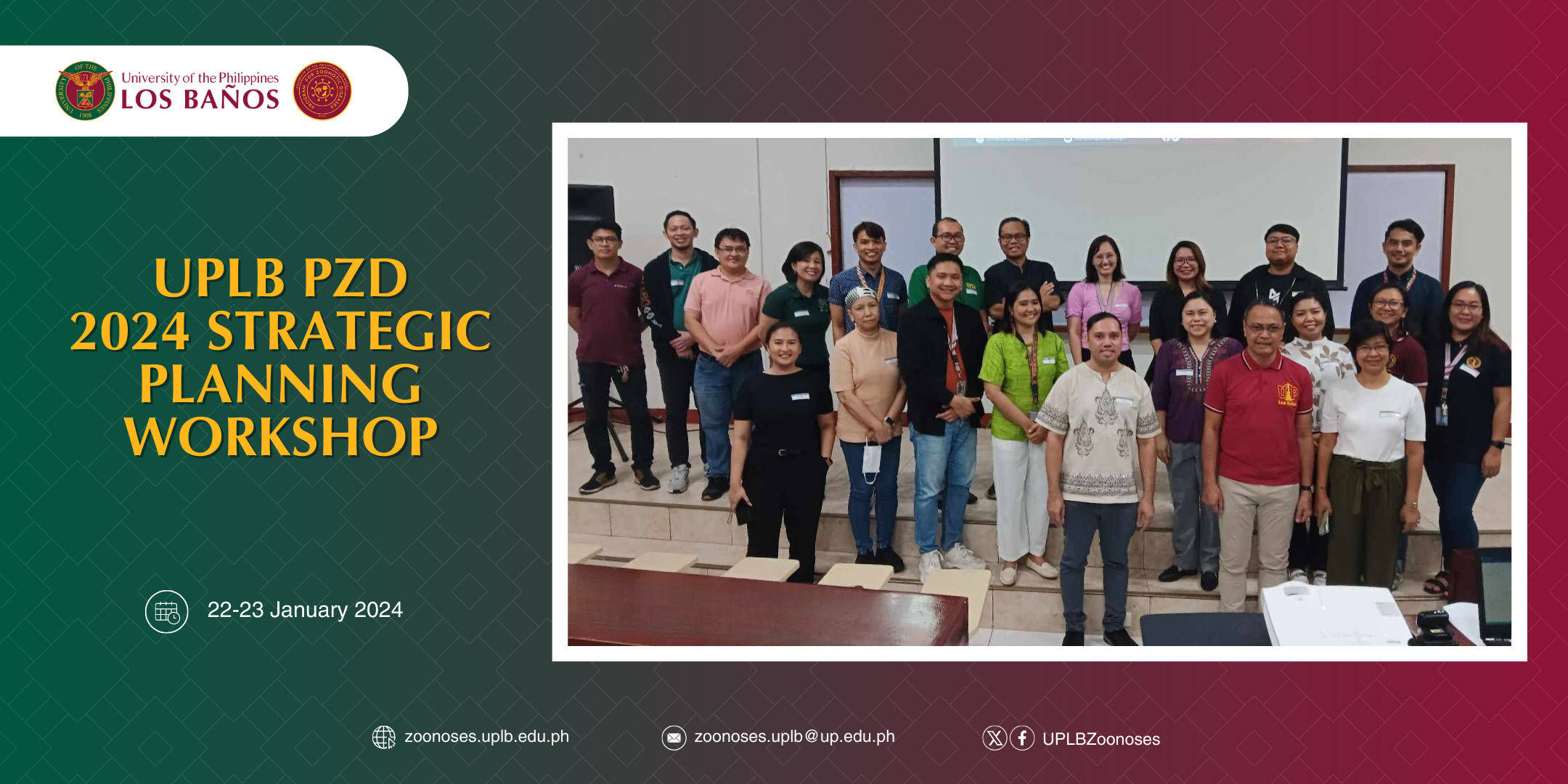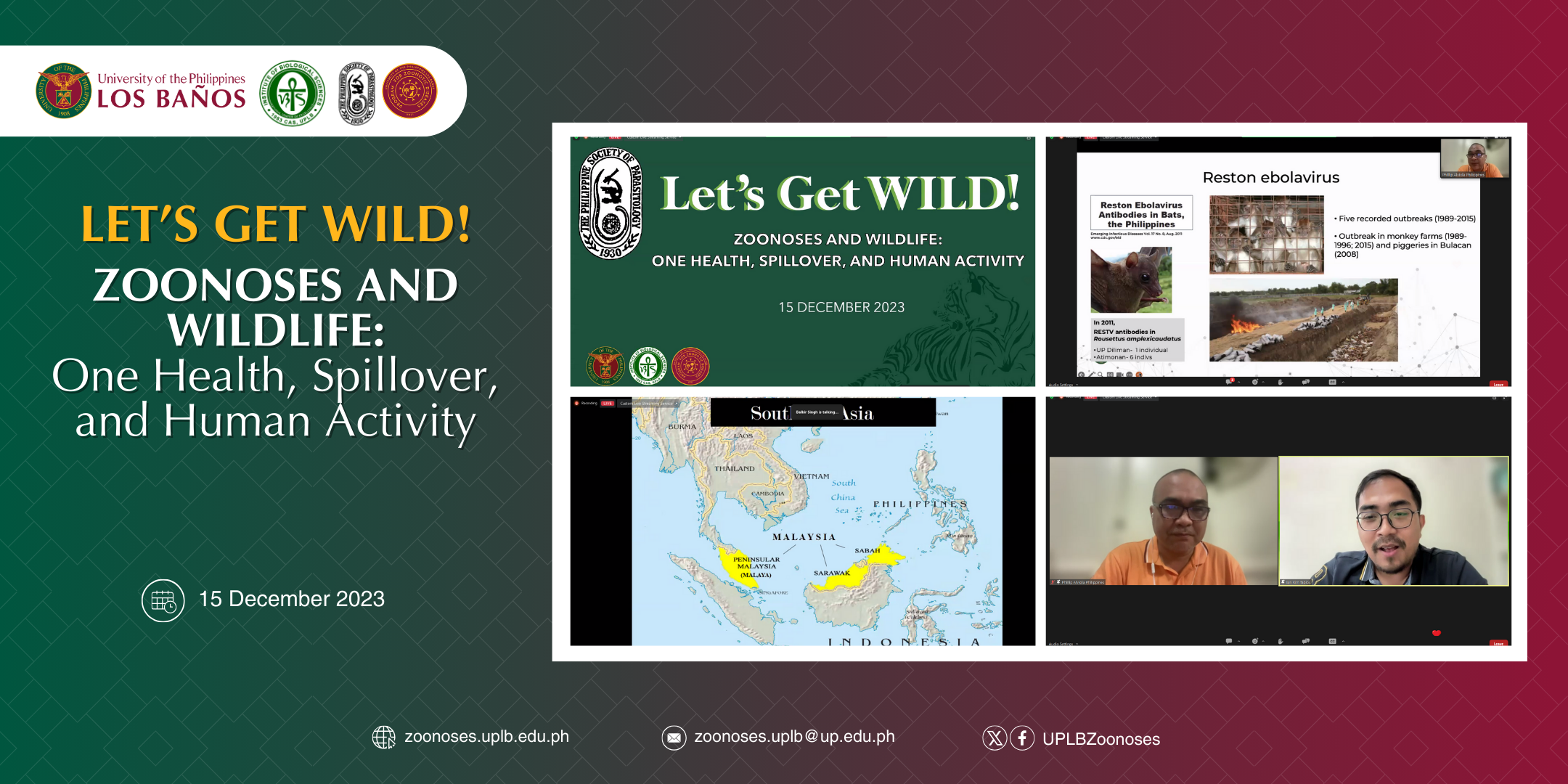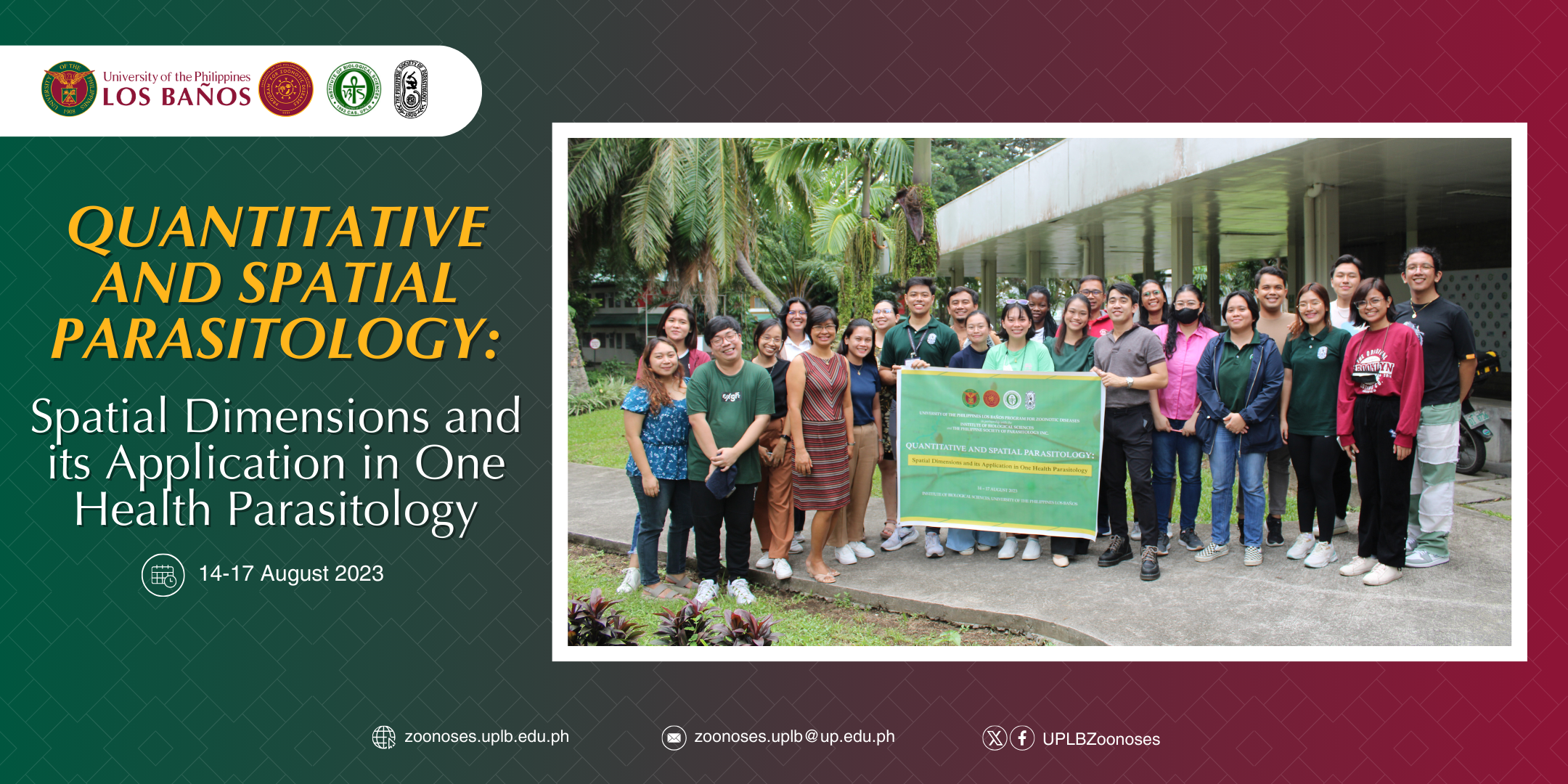UPLB PZD facilitates PhlCZ Planning and Review Workshop on the 2023-2028 National Strategic Plan on Zoonoses
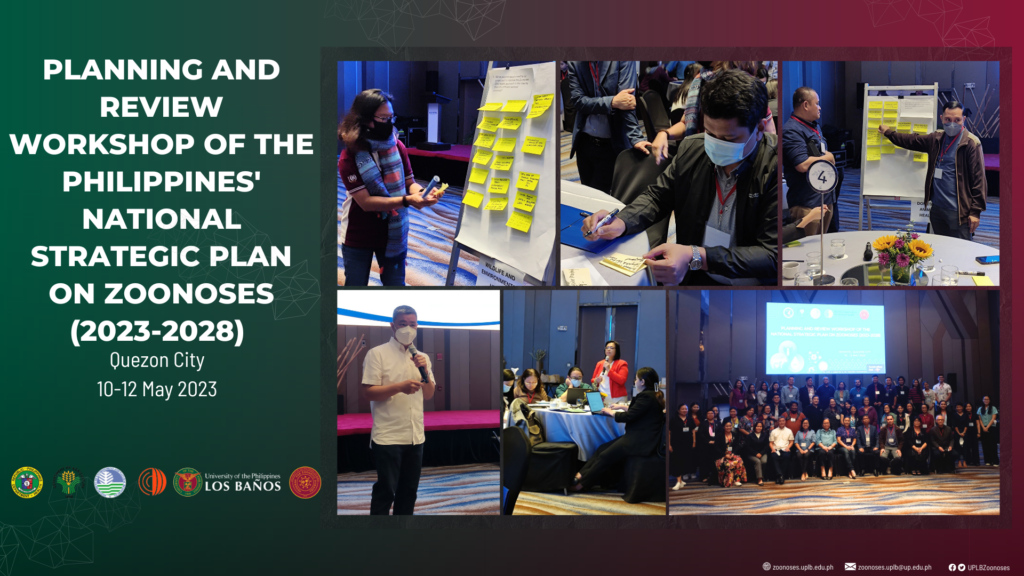
“We may come from different agencies with specific targets and focuses, but we share a common goal in protecting humans and animals including their habitats, where they thrive. And with our continued cooperation and collaboration, we’ll definitely be more effective in the prevention and management of zoonoses.” These were the words of Atty. Theresa Tenazas, Chief of the Department of Environment and Natural Resources Biodiversity Management Bureau Wildlife Resources Division, during the opening program of the Planning and Review Workshop of the Philippines’ National Strategic Plan on Zoonoses held last May 10-12, 2023 at Novotel Manila Araneta City, Cubao, Quezon City.
The workshop revisited and updated the National Strategic Plan on Zoonoses. It was organized by the Philippine Inter-Agency Committee on Zoonoses (PhICZ), in cooperation with the UPLB Program for Zoonotic Diseases (UPLB PZD) and support from the World Organisation for Animal Health (WOAH) and Australian Agency for International Development (AusAID). Furthermore, the activity strengthened the current efforts to address the growing concern about zoonotic diseases following the previously concluded National Bridging Workshop on the International Health Regulations and Performance of Veterinary Services Pathway in 2022.
More than fifty participants representing various collaborators from government agencies (Department of Health, Department of Agriculture, and Department of Natural Resources), professional organization partners (Armed Forces of the Philippines Veterinary Corps, ASEAN Centre for Biodiversity, ASMPH Centre for Research and Innovations, Philippine College of Veterinary Public Health, Philippine Veterinary Medical Association, and Provincial, City and Municipal Veterinary League of the Philippines among others), and international organizations (Food and Agriculture Organization, US Agency for International Development, World Bank, World Organisation for Animal Health, and World Health Organization) were present in the event.
Participants pose for a photo during the workshop.
Dr. Alethea De Guzman (Director, DOH-Epidemiology Bureau), Dr. Paul Limson (Director, DA-Bureau of Animal Industry), Atty. Theresa Tenazas (Chief, DENR-Biodiversity Management Bureau Wildlife Resources Division), and Dr. Ronello Abila (Sub-Regional Representative, WOAH Sub-Regional Representation for Southeast Asia) welcomed the participants and gave their encouraging messages to work together amidst the challenges. Their opening speeches emphasized the significant impact of a synergistic concerted effort among agencies in the human, animal, and environmental sectors as well as the importance of addressing the challenges and gaps in collaborating with different institutions.
Local and international initiatives on One Health, discussions about the 2016 National Strategic Plan on Zoonoses, and the set priority activities for stronger multisectoral collaboration out of National Bridging Workshop (NBW) Road Map were covered in the plenary sessions of the three-day event.
On the first day of the workshop, each participating institution examined activities relevant to zoonoses for the past six years, and assessed the challenges encountered in implementing the activities and the measures done to address them. Dr. Remil Galay, UPLB PZD Director, was the main facilitator of the session. Dr. Teri-Marie Laude, Dr. Emilia Lastica-Ternura, Dr. Ronilo Jose Flores from UPLB PZD and Dr. Imelda Santos from PhilVet Health Services, Inc. also served as facilitators in the group discussions.
Dr. Alethea De Guzman shares DOH’s vision of strengthening the committee through various interventions.
Participants discuss the activities in the past years, challenges encountered, and measures taken.
Adopting a World Café approach in facilitating dialogue or group discussions, participants were tasked to answer questions pertaining to their vision in enhancing One Health solutions to addressing zoonoses. In the second workshop session participants were asked to think of priority areas to work on and top programs to implement. The participants needed to think from a holistic view but also in consideration of public health, domestic animal health, wildlife health, environmental health, and partnerships and cross-cutting themes. In a plenary, the participants presented key concerns in each health sector and discussed the NBW road map. Dr. Santos served as the main facilitator, while Dr. Laude, Dr. Galay, Dr. Lastica-Ternura, and Dr. Flores served as group facilitators during the World Café session.
Participants discussed the priority areas to work and proposed activities.
Partipants presented the outcomes of the second session.
Representatives from different sectors presented the outcomes of Workshop Session 2.
Agency representatives also nominated focal and alternate focal persons per technical area to establish the Technical Working Group. Dr. Janice Garcia from the Bureau of Animal Industry (DA-BAI) also presented the next steps and way forward of the committee.
In the closing ceremony, Dr. Anthony Bucad (DA-BAI), Ms. Richelle Abellera (DOH-EB), together with Ms. Mirasol Ocampo (DENR-BMB), conveyed their gratitude to the Australian Government, Department of Foreign Affairs, Department of Trade and Industry, and WOAH for their steadfast support. As Ms. Abellera highlighted, “… We are working towards One Health approach with regard to common issues we are facing for human, animal, and environmental health.” Ms. Ocampo also expressed her hopes for other DENR bureaus to also join the Biodiversity Management Bureau (BMB) in future workshops and activities.
The three-day workshop brought together various stakeholders in high hopes to champion integrated collaboration among concerned agencies by promoting a unified action toward a shared, common goal. Through the active participation from each sector, the workshop yielded significant outputs and a fruitful exchange of discussions to realize One Health activities addressing concerns related to zoonoses.
Ms. Arra Alyssa Oliveros, Ms. Twilitte Ae Medalle, Mr. Dino Mari Manasan, and Ms. Christine Grace Mapacpac from UPLB PZD also helped in the logistics and documentation of the workshop. Dr. Elaine Llarena, PZD Division Leader of Communication and Knowledge Management, spearheaded in conceptualizing the design and program of the workshop.

